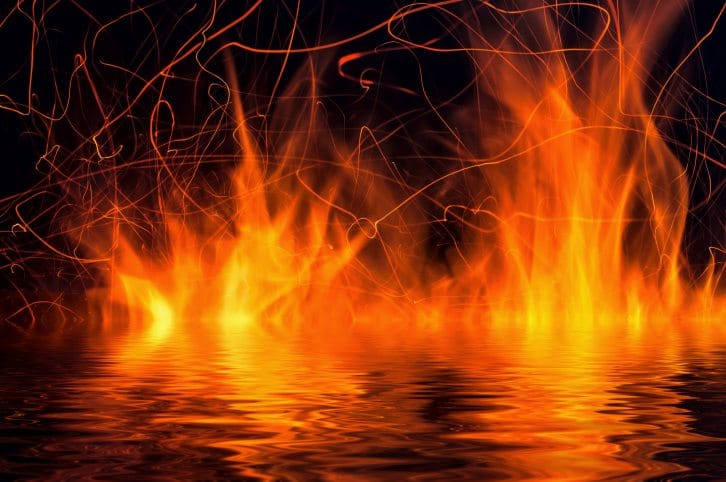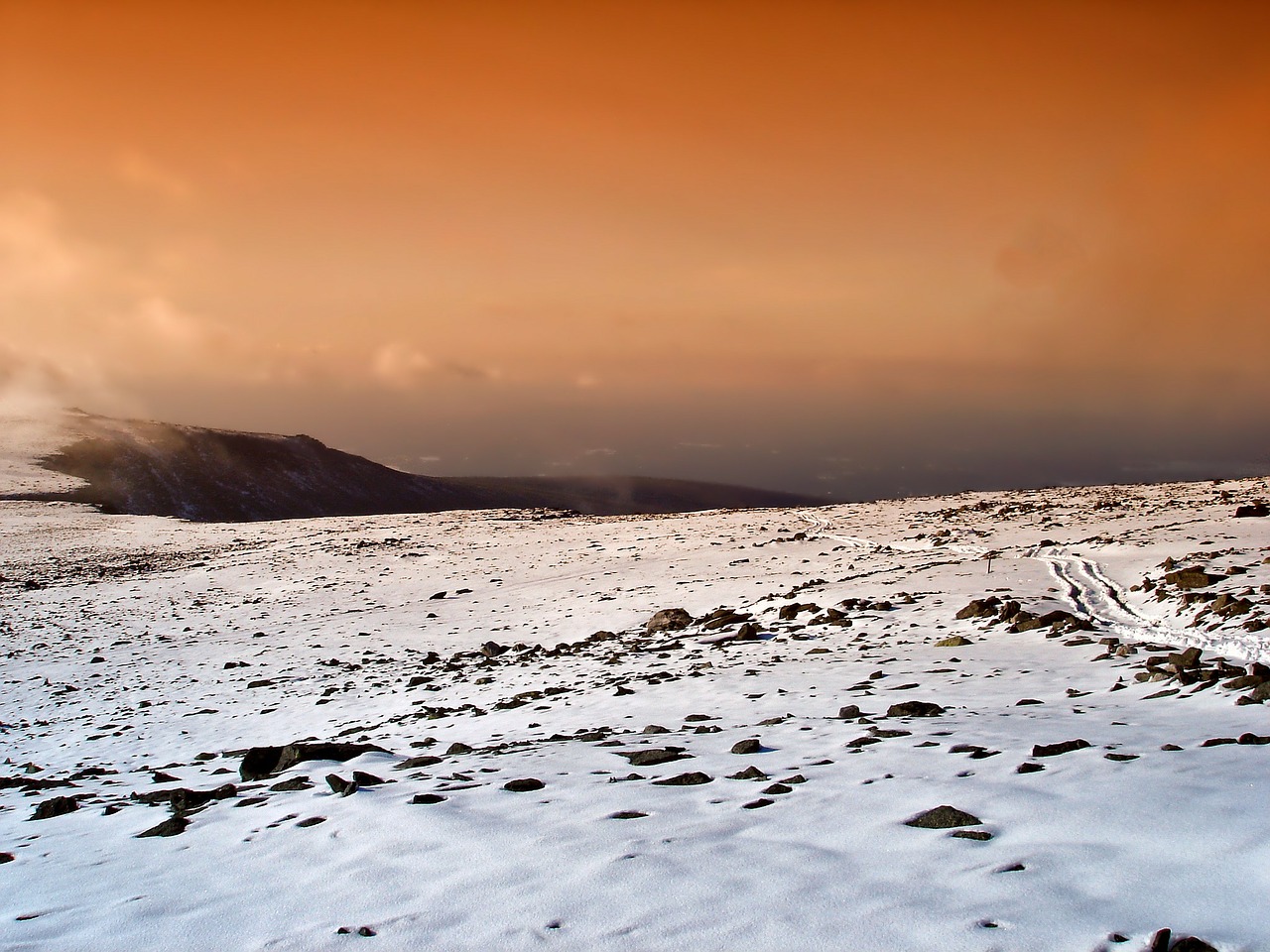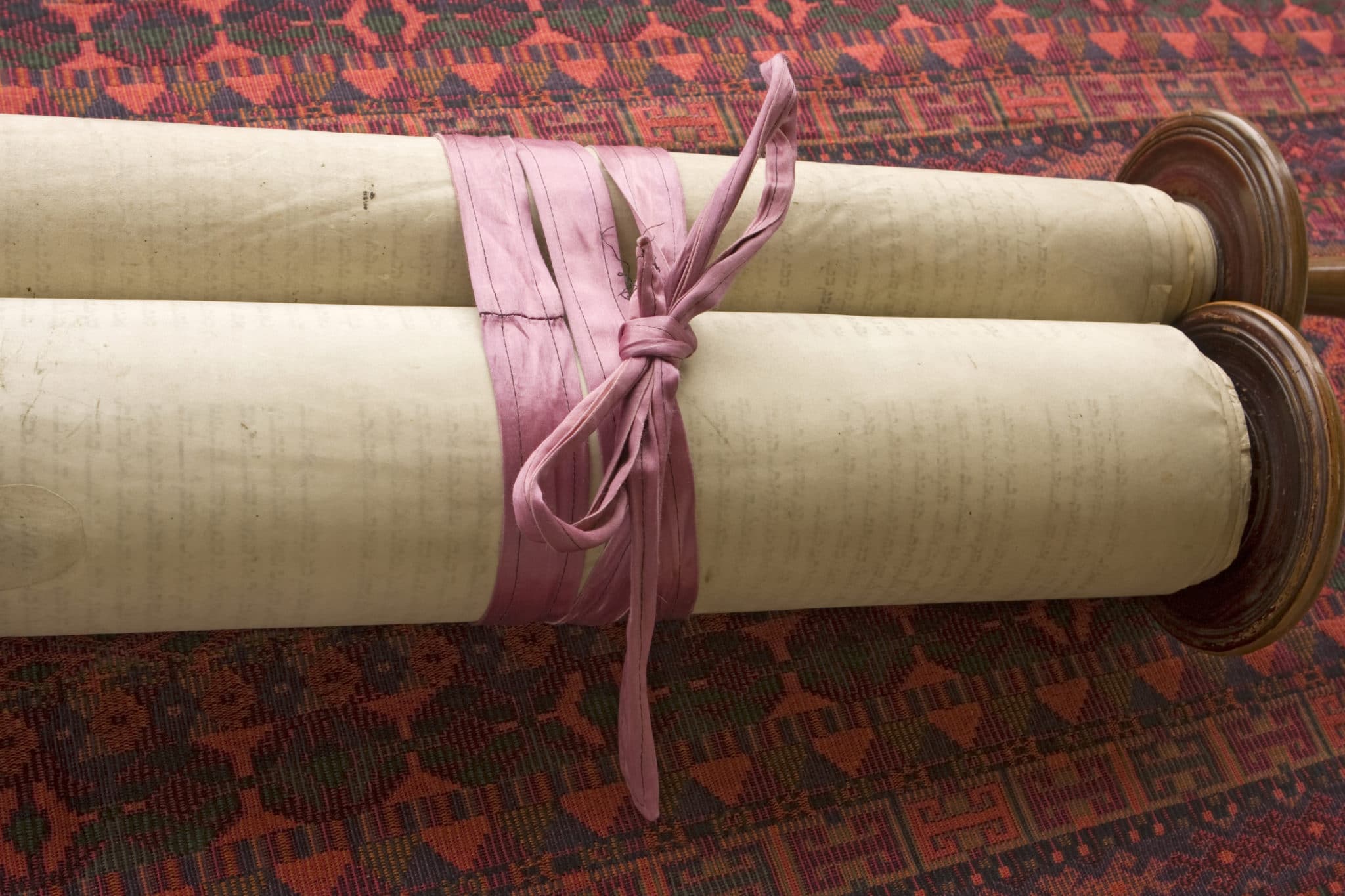By Mendel Jacobson
Simchat Torah 5730, 1969.
A young 14-year-old boy is keenly watching a man dancing as if there are no worries in the world. His legs pump in a rhythm only his soul could produce. He looks like a flame, flickering on and on, reaching for a place beyond anything he has ever known. Wow, the boy thinks to himself, “how could that man be so happy?”
“Which man?”
Startled, the 14-year-old boy didn’t realize he’d asked that question aloud.
“Which man?” His father asks him again.
“That man,” the young boy points to the whirling dancer. “He must be the happiest man on earth.”
As his father looks to where his son is pointing and he sees the black-bearded man with five children in tow, his eyes fill with tears and he sighs. “That man lost his young wife just six days ago.”
“But then how can he be so happy, how can he possibly dance like that?”
“Because today is Simchat Torah and it is a mitzvah to dance and to be happy. This is what a Jew does; this is what a real Chassid does.”
Although this story happened before I was born, I have heard it many times.
The year was 5730, 1969, and, on the second day of Sukkot, a young 42-year old man lost his wife to leukemia. As was the custom instituted by the Lubavitcher Rebbe, every year, on Simchat Torah, hundreds of Chassidim would walk near and far to celebrate with Jews in Synagogues across New York. This man was one of those Chassidim. Each year Simchat Torah he would take his young children to a small shul in East Flatbush where they would dance with the Torah and rejoice with the community. That year, 1969, the young man did the same. The children’s grandmother, their mother’s mother, dressed them in their finest clothing and sent them off with their father to East Flatbush.
It was there, in that little shul, that this dialogue between father and son took place.
After the dancing was over in East Flatbush, the young man and his children walked back to Crown Heights. He dropped his younger children off at home with their grandmother and hurried to 770 where the Lubavitcher Rebbe was in midst of a farbrengen. Every year on Simchat Torah, before hakofot, the Rebbe would speak for a number of hours, discussing the intricate energies of Simchat Torah and hakofot. The farbrengen would consist of several talks, each one punctuated by the singing of a niggun, a Chassidic melody sometimes dating back hundreds of years. The man of whom we are speaking was the one who began the niggunim at the Rebbe’s farbrengens.
The shul at 770 Eastern Parkway was packed from floor to ceiling; people were clinging to bleachers and rafters just as they did to the Rebbe’s every word. As the Rebbe finished one segment of his talk, the crowd looked to the new widower to begin a song. What happened next was one of the most dramatic experiences in the lives of those who attended that gathering. A rare moment of truth…
Through the hush of thousands of people, a gentle but defiant voice began to sing:“Mi vadiom nye patonyem, ee v’agniom nye s’gorim,” a vibrant Chassidic Russian melody meaning, “We in water will not drown, and in fire will not burn.” The Rebbe looked up and stared at the man – with a piercing, knowing gaze that is impossible to describe. Suddenly the Rebbe sprang up from his chair, pushing it back with such force that it nearly fell over. The Rebbe began dancing in his place, rocking up and down, swaying back and forth, with incredible intensity and passion. Witnesses say that in all the years the Rebbe never danced – never before and never after – quite like that.
As the Rebbe swung his arms, leading the singing, the crowd became more and more energized, chanting in unison, “We in water will not drown, and in fire will not burn; we in water will not drown, and in fire will not burn.” Faster and faster they chanted, as if in a trance.
People present later described the unbelievable sight of this fragile man who had just experienced utter devastation, swinging back and forth – surrounded by waves of people, being led by the Rebbe himself – singing: “We in water will not drown, and in fire will not burn,” nothing can vanquish our spirit – as if G-d had not just taken his wife, as if he was the happiest man alive.
Everyone melted in the dance and the song. The joy and the tears all dissolved into one transcendent dance; a dance that captured the essence of joy and pain, ecstasy and agony – the indestructible core of life itself. At that moment everything and nothing made sense. “Mi vadiom nye patonyem, ee v’agniom nye s’gorim,” “We in water will not drown, and in fire will not burn.”
Moments like that become frozen in time.
~~~
Fast-forward 20 years:
A phone call comes in to a major Jewish children’s organization in Crown Heights, Tzivos Hashem.
“Hello,” the voice on the other end of the line says. “I am so-and-so and I would like to sponsor children’s programs for Simchat Torah,”
“Ok, sure,” the man working in the organization happily replies. “But, if I may ask, why do you have this particular interest in children’s programs for Simchat Torah?”
“Well, you see, when I was a boy, every Simchat Torah my father and I would go to a small shul in East Flatbush to celebrate. One year, when I was fourteen, as I was watching the few people dancing in a circle, I noticed one man who looked so happy, as if everything in the world was perfect. I stood there transfixed, wondering how this man could exude so much joy. I asked my father this question, and my father told me that I should know this man just lost his wife but, because he is a real Chassid and the Torah says to be happy on Simchat Torah, he is happy. This made a very big impression on my 14-year-old mind – that a Jew could put aside all his pain and suffering and be happy just because it’s a mitzvah to be happy was unbelievable to me – so I decided I would like to help other children celebrate the happiness and joy of Simchat Torah.”
~~~
Fast-forward another 17 years:
On the 23rd of Cheshvon, 5767, 2006, the man of this story, Rabbi Zvi Hirsch Gansbourg, the one who lost his wife in 1969, rejoined her in the Garden of Eden. Yet, his (and her) grandchildren, their “life,” live on. They have built families and communities, changed people’s lives, and continue to make the world a better place.
The story of the young man has taught me much: even in the saddest of times, even when all seems lost, with a little joy, a little dance, everything can change.
And it’s true, “We in water will not drown, and in fire will not burn.”
How do I know? you may ask. Because I myself am living proof. You see, my mother was the youngest of those five children that walked with their father to that small shul in East Flatbush those 41 years ago.








wonderful!!! intense, extreme joy and happiness remembering man and woman as one above and beyond all mistaken identities experienced, greek and jew one as always from origin before the foundation of this world. an invisible word known in the dance of true joy within it becomes presence with us as one — love, joy, peace. thank-you!!
Thank you for this amazing story. What a brocha to have a zeide like that. Keep telling his story of hope and triumph of the human spirit, the human heart.
Chag Sameach,
Dovid
The most moving story about Simchas Torah I have ever read. It is so wonderful that this chassid continues to inspire us even when he is no longer on this earth. And, by writing this story, also his grandson.
Thank you for sharing this story which is very inspiring and empowering. Being in the moment… a story of trust and faith and letting go. Its big.
Reading this had me in tears. Coping with hard times is so much easier for those of us who believe in God.
Thank you for this beautiful and inspiring story. I always appreciate reading your thoughts…they are a very powerful lighthouse.
Your message supports a message I have worked to live by and teach…how we never know the full impact of our words and deeds. I applaud you for finding this way to remind us again of this simple truth.
Enjoy your holidays.
m
Wow! Thank you for this beautiful and inspiring story. I will make this my mantra. Yasher koach!
i have no words to describe this amazing story!
bh YECHI HAMELECH! Am Yisroel chai!
this story feels to me to be living oral Torah. how fitting to share this now. today rabba!
I pray, in torment and tears, in the US, while our son, sick while teaching English in China,is unsure about how to get competent medical care. My faith rises to the level of reciting the Shehechianu, with, I believe, a full heart, but still crying like crazy. But to dance? My learning had not included your lesson on Simchat Torah. My secular roots feed the tears.
Thanks for your Chassidic Tale, which has shown me how much farther I may go, with emunah shlemah, which I still obviously lack.
great article mendy! really inspirational.
this story will remain etched in my mind, alive in my heart always!I hope to share it again and agin to keep it alive!
Truly, the peace of HaShem is past understanding; the joy of HaShem is unspeakable and full of glory. Only He can give strength, peace, joy, and the ability to give thanks through these life tests.
Great story Mendel! I lost my mother this year and was under the impression that I was to morn for at least a month afterwards. During Passover, a Hassidic Rabbi saw me with the mourning ribbon on my shirt and, knowing of my recent lost, suggested that I lose the ribbon, for Passover was a joyous holiday. Obviously, the message was not that I should forget my mother or dismiss her memory, but transform that memory into a blessing and joy which is what I continue to do to this day and going forward.
In a related note, my yiddish name is Mendel, and as you probably know, the name means–to heal, or mend. I am a writer who uses my gifts to uncover the clues that are around us that help us to fulfill our purpose on this planet. Writing is a great way to heal, and help others to renew the spark in their soul. Glad to see you too are living up to your name!
Best to you!
Marc Mendel Oromaner
http://thelaymansanswerstoeverything.com/
Im so moved by this story…and I apologize for asking, but I was thinking about the chronology and the Rebbe in 1969…how young was your mother when your grandmother died? I was born in the 70s and had trouble figuring out the way the years added up. Thanks!
What a moving and inspirational story. Keep up your wonderful work and thank you for sharing.
Well.. this story comes for me.. at a crucial and criical time as well.
My apartment has been flooding for the past month and so.. I will have to move and clear all my belongings form 35 years in order to set a new foundation and that is a big job when I also work at home and will have to take off a week or more and loose my income.. but what really did shock me and put me out.. was much much deeper and more and more jewish in its origin.
when I was 8 years old my mother was hospitalized 1961 for post partum depression.. but back then it was diagnosed as paranoid psychophrenic..
and she was given electric shock therapy.. for three years.. atleast 8 months a year..
and so.. I was in third grade and I lost my mother,, but I did gain a brother.. and this new born had no mother and no real security and stability.. with the exception.. of food and surely a housekeeper at times.
He was my life line to life and love and God.. and
so we grew up.. both of us.. involved with spirituality and meditation and I deep need for God and Light in our life.. and we both did love and serve our parents.. and they both did the best that they could as well.
However.. I call this a modern Day Holocaust.. because.. of the ongoing pain and depth of secrecy.
No Family could even discuss or share the grief and the loneliness of loosing a mother.. to a false diagnosis and to the medical system and also having the ongoing shame and stigma of mental illness. and so.. this is quite lonely and isolating.. not at all like the holocaust.. which was group trauma and also people did die but it was not an every day.. suffering.. of having to hide all ones feelings and needs because of a parent that is mentally ill. then my father left my mother when I was 18 years old after she did attempt suicide again and was not hospitalized but rather.. had her mother stay with us..
Medicated on lithium.. and then she also developed the disease of Mysthenia Gravis.. It was all very grave..
and now.
My brother.. has been using Crack and being on the streets to self medicate.. and
after 18 years of trying to help him with treatment and places for love and healing and consciousness.. I am completely.. tired and drained.. and I am also a therapist and so I spend all my time.. giving my love and wisdom and consciousness to others.. and there is absolutely no place for me to go to get any comfort except Ha Shem and Alanon..
The synagogue does not want to know my pain and my terror and loss.. and a terror that is there each and every morning that I wake up.. I have been there with many Jewish clients who have sexual abuse and other.. deep places of frozen fear.
For myself.. I am quite scared and sad..
I have no family.. really.
we are all fragmented by the loss and the terror and shock of my mothers illness that came when I was 8 years old which is 49 years ago.
I receive a call after Shabbat last week that my brother was beaten to the pulp and he will be killed by several Black drug addicts and drug dealers.. and so..what can I do about this?
Pray.. Dance.. Call the Police.
Realize that without Ha shem.. we are all dead.. really.. and with Ha Shem.. I need to put and place my love for God above my need and my attachment to my family members.. To Love The Lord our God with ALL.
Is really quite..a message..that no matter what.. our bond with God has to be above all bonds with family and human people.
We hope that we can serve and love God together side by side..
but what A challenge I face..
Like father (and grand father) like son; excellent piece. keep it up please.